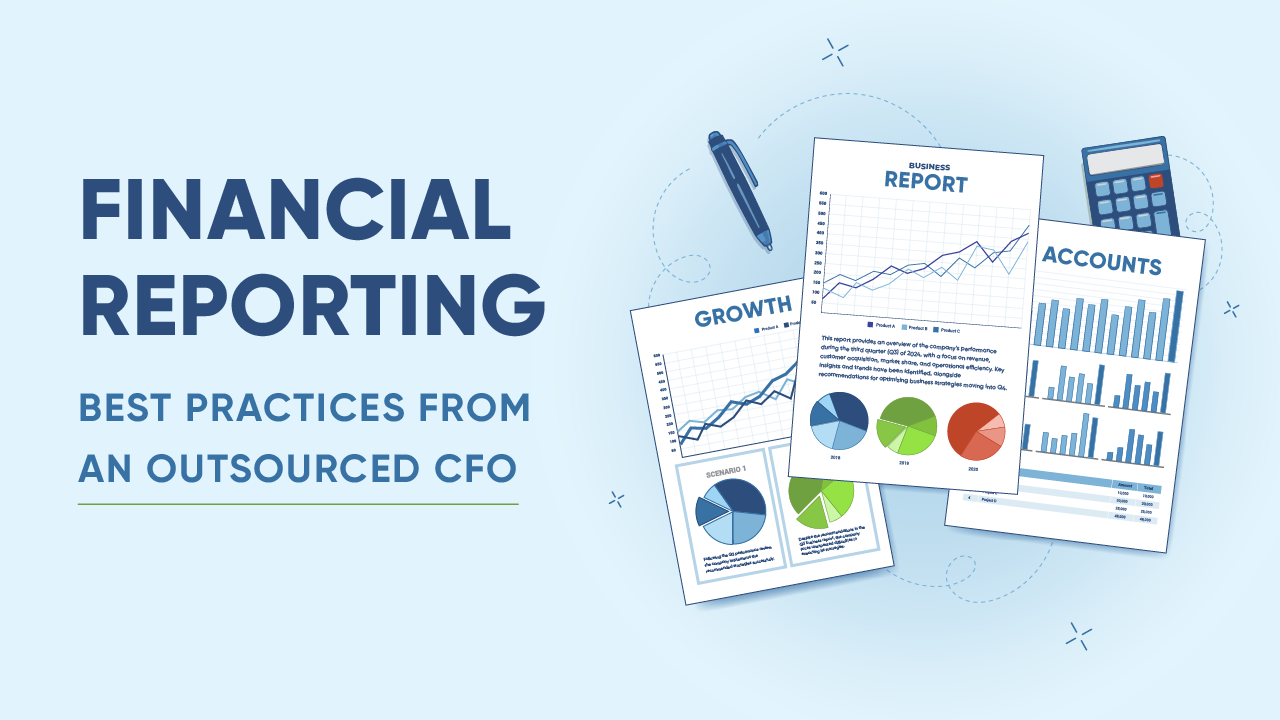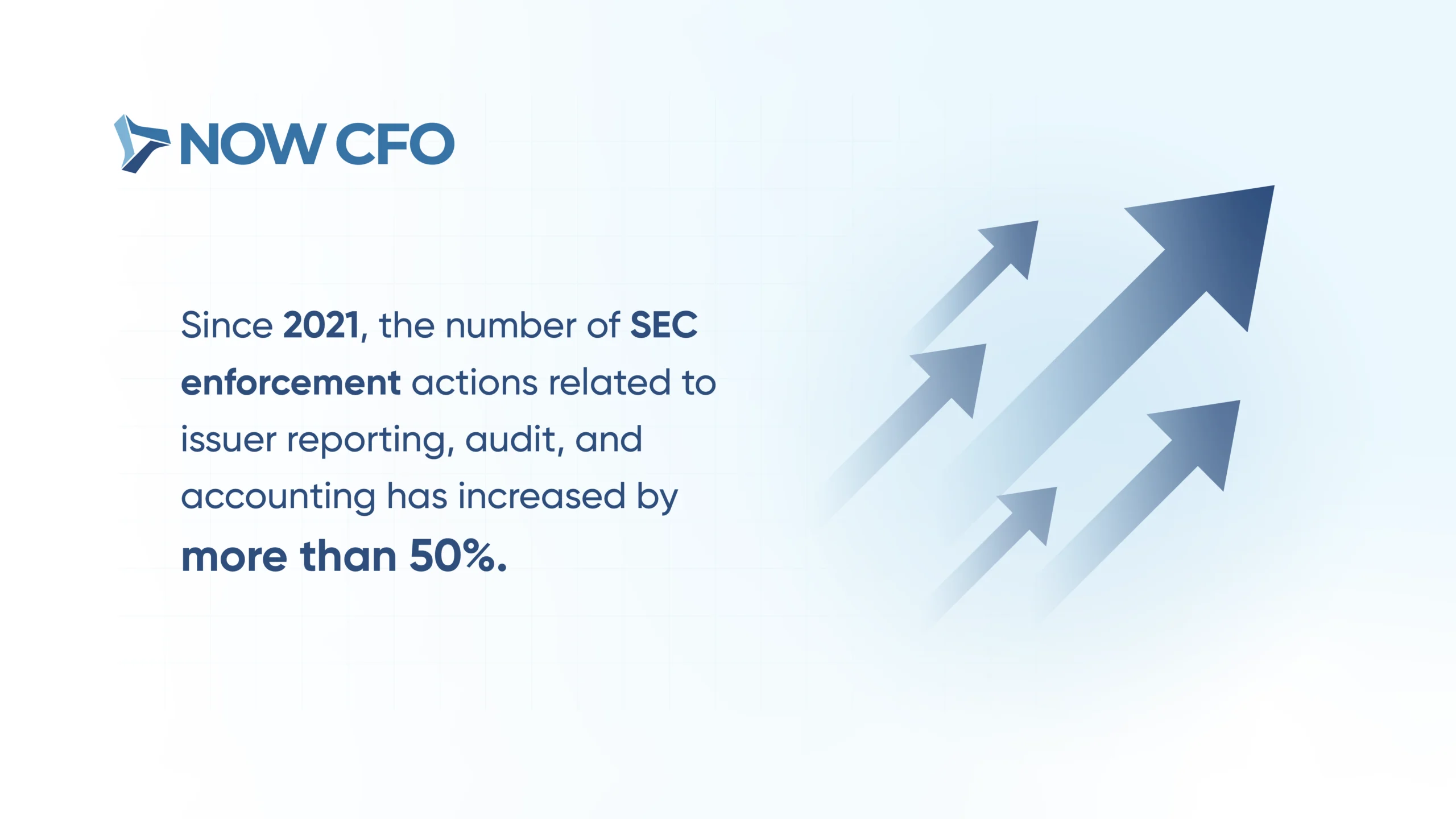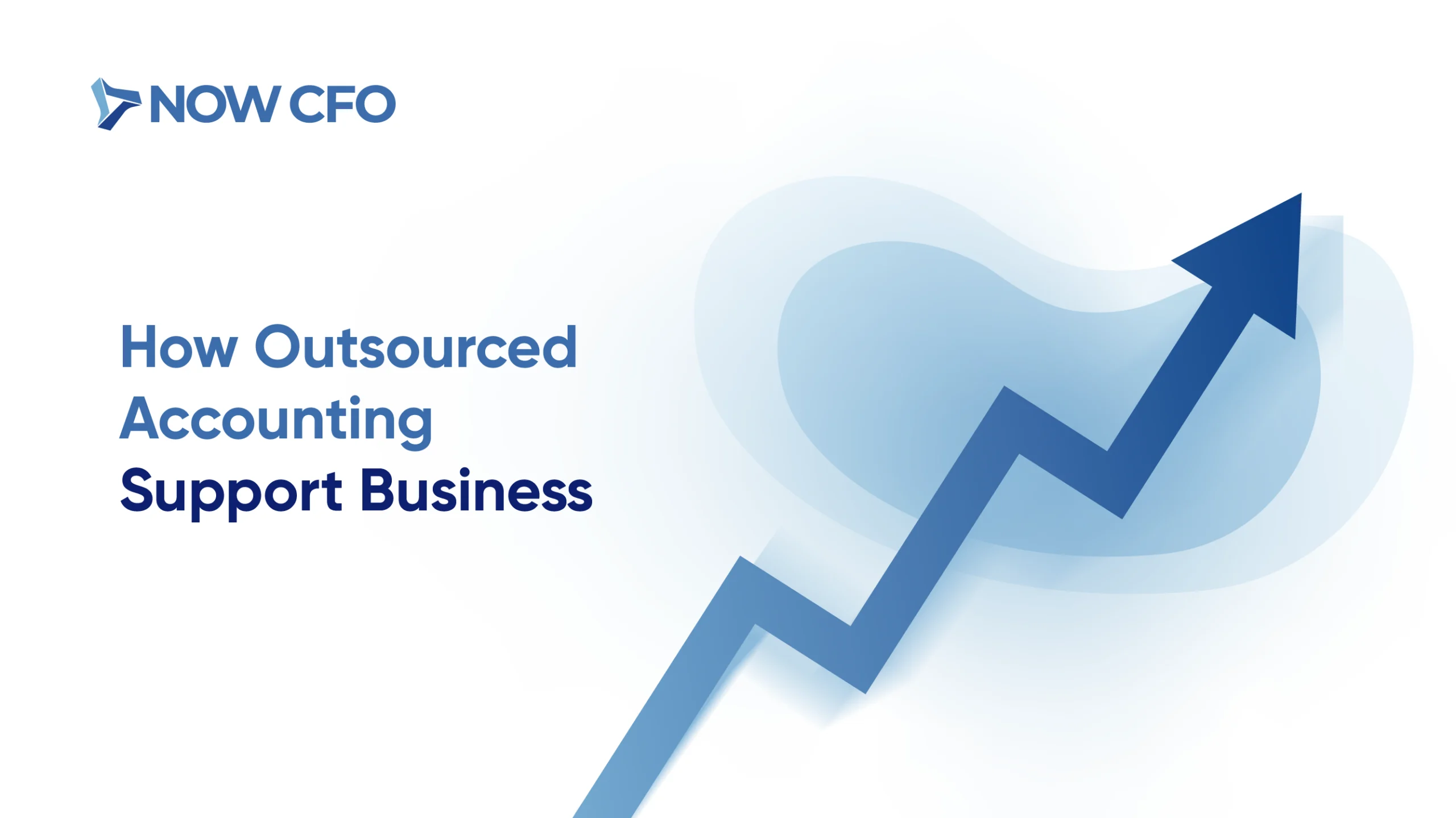
Effective financial reporting is essential for businesses. It provides a clear picture of economic health and guides strategic decisions. High-quality financial reporting ensures transparency and accountability, fostering trust among investors and stakeholders.
However, many organizations struggle with maintaining accurate and consistent financial reports. Common challenges include data inaccuracies, non-compliance with standards, and inadequate disclosure, which can lead to significant economic and reputational risks.
By focusing on these areas, businesses can improve their financial reporting, leading to better resource allocation, increased stakeholder trust, and overall organizational success.
The Importance of Financial Reporting Best Practices
Almost 40% of CFOs worldwide do not completely trust the accuracy of their organization’s financial data. Transitioning to a structured approach in annual financial reporting transforms businesses’ operations, especially when accuracy and compliance are prioritized.
These practices improve financial transparency and equip organizations with tools for better decision-making.
Understanding Financial Reporting
Financial reporting and analysis involves preparing and presenting financial data that reflects a company’s operations, financial position, and cash flows. Key documents include:
- Balance Sheet: Summarizes a company’s assets, liabilities, and equity.
- Income Statement: Highlights revenues, expenses, and profits over a specified period.
- Cash Flow Statement: Tracks the inflow and outflow of cash.
These reports are essential for communicating a business’s financial health to stakeholders.
Benefits Of Adhering To Financial Reporting Best Practices
Adopting best practices enhances several aspects of a business:
- Improved Decision-Making: Clear, consistent reports make data-driven decisions possible. Businesses can accurately predict trends and respond to challenges effectively.
- Stakeholder Trust: Transparent financial reports build confidence among investors and creditors. They are more likely to support businesses that demonstrate accountability.
- Regulatory Compliance: Proper reporting ensures businesses meet legal obligations and avoid penalties.
- Operational Efficiency: Streamlined reporting practices reveal inefficiencies, allowing businesses to implement corrective measures and cut costs.
- Standardized Comparisons: Adhering to financial reporting standards (like GAAP or IFRS) ensures consistency, making it easier to compare performance across industries.
Key Financial Reporting Best Practices
Adopting key financial reporting best practices is crucial for businesses seeking accurate and actionable insights from their financial data. These practices ensure that records are consistent, compliant, and tailored to meet business goals.
Let’s explore the essential elements that form the backbone of robust annual financial reporting.
Maintain Accurate and Up-to-Date Records
Keeping financial records accurate and current is the cornerstone of effective reporting. Accurate records not only ensure reliability but also simplify audits and financial reviews.
- Organized Record-Keeping Systems: Businesses must use structured systems to categorize income, expenses, and assets. Digital tools such as accounting software reduce errors compared to manual tracking.
- Routine Updates: Updating records frequently; daily or weekly is essential to avoid backlogs.
Implement a Consistent Reporting Framework
A standardized framework ensures all financial reports adhere to established guidelines, such as GAAP or IFRS. Consistency enhances transparency and improves comparability for stakeholders.
- Adherence to Standards: By following frameworks like GAAP, businesses align their practices with regulatory requirements.
- Internal Uniformity: A consistent approach across departments helps maintain uniform data across all reports.
- Audit Readiness: Using frameworks minimizes discrepancies that could arise during audits or regulatory reviews.
Use Financial Reporting Software For Efficiency
Financial reporting and analysis software streamlines data collection, analysis, and presentation. By automating repetitive tasks, companies can focus more on strategy than administrative processes.
- Automation Benefits: Automating entries reduces human errors, saving businesses up to 30% on operational costs.
- Customization Options: Modern tools allow tailored reports to suit specific stakeholder needs.
- Scalability: As businesses grow, software platforms can handle increasing data volumes efficiently.
Popular options include QuickBooks, Xero, and Oracle NetSuite, each offering unique features for different business sizes.
Regularly Review and Analyze Financial Reports
Regularly analyzing financial reports like management reporting is vital for identifying trends, spotting inconsistencies, and making data-driven decisions.
- Scheduled Reviews: Conduct monthly or quarterly reviews to track financial performance.
- Actionable Insights: Reviewing reports helps detect discrepancies early and implement corrective actions.
- Strategic Benefits: Regular analysis supports long-term financial planning by identifying opportunities for growth or areas of risk.
Ensure Compliance with Financial Reporting Standards
Compliance with GAAP or IFRS is non-negotiable for accurate and lawful reporting.
- Regulatory Alignment: Following GAAP or IFRS ensures that financial statements meet legal and professional standards, reducing the risk of penalties or reputational damage.
- Auditor Confidence: Reports prepared under these standards provide auditors with precise, standardized data for review.
- Global Comparability: Compliance allows businesses operating internationally to align their reporting practices across regions.
Tailor Reports to Meet Stakeholder Needs
Generic reports often fail to address the specific concerns of stakeholders, such as investors, creditors, or internal management. Tailoring financial reports ensures that each audience receives relevant, actionable information.
- Investors and Shareholders: Provide detailed profitability metrics and growth forecasts.
- Creditors and Lenders: Highlight solvency ratios, cash flow data, and repayment capacity.
- Internal Management: Focus on operational KPIs to drive decision-making.
Customizing reports improves engagement and fosters trust. Stakeholders are more likely to support businesses that understand their unique needs.
Utilize KPIs to Measure Financial Performance
KPIs transform raw financial data into measurable goals. They provide insights into whether a business is meeting its strategic objectives.
- Examples of Financial KPIs: Common metrics include gross profit margin, current ratio, and debt-to-equity ratio.
- Data-Driven Adjustments: Analyzing KPI trends allows businesses to adapt to changing conditions, ensuring sustained growth.
- Monitoring Progress: Regularly tracking KPIs keeps teams aligned with financial goals.
How an Outsourced CFO Enhances Financial Reporting
Engaging an outsourced CFO can dramatically improve the quality and effectiveness of a company’s financial reporting processes. With financial analysis and strategy expertise, these professionals bring an external perspective and specialized skills to elevate a business’s economic health.
Expert Guidance on Financial Reporting Standards
Outsourced CFOs have deep knowledge of financial reporting standards like GAAP and IFRS, ensuring that all financial reports are accurate and compliant.
- Error Reduction: Their expertise minimizes errors that can occur during report preparation, which is crucial for regulatory filings.
- Adaptability: They ensure compliance with evolving standards and regulations, particularly when expanding into new markets or industries.
- Audit Preparation: Outsourced CFOs streamline audit processes by preparing detailed, standardized reports.
Strategic Insights from Financial Data Analysis
Outsourced CFOs transform raw financial data into actionable insights, helping companies make informed strategic decisions.
- Trend Identification: They identify trends that can guide long-term planning by analyzing historical data.
- Cost Optimization: They pinpoint inefficiencies and recommend cost-saving measures, improving profit margins.
- Growth Strategies: Through detailed analysis, outsourced CFOs help businesses identify investment opportunities or new revenue streams.
Improving Communication of Financial Information
One of the most critical roles of an outsourced CFO is bridging the gap between financial complexity and stakeholder understanding. They ensure financial information is communicated clearly and effectively.
- Customized Reporting: Outsourced CFOs tailor financial reports to meet the specific needs of different stakeholders, from board members to lenders.
- Enhanced Transparency: Clear and concise communication fosters trust and facilitates better decision-making.
- Stakeholder Engagement: By presenting data in accessible formats, they encourage meaningful discussions about business performance.
Common Mistakes in Financial Reporting and How To Avoid Them
Even with advanced systems and frameworks, errors in annual financial reporting are common and can lead to significant repercussions, such as misinformed decisions or regulatory penalties. Since 2021, the number of SEC enforcement actions related to issuer reporting, audit, and accounting has increased by more than 50%.

Identifying these mistakes and implementing preventative measures ensures accuracy and trust in financial statements.
Lack of Consistency in Reporting
A consistent approach to financial reporting and analysis is critical to maintain credibility and comparability. Yet, inconsistency is a common pitfall for many businesses.
- Irregular Frameworks: Switching between reporting standards (e.g., GAAP and IFRS) creates confusion and inaccuracies.
- Inconsistent Timeframes: Reporting periods that vary from quarter to quarter hinder identifying trends.
How to Avoid It: Adopt and adhere to a standardized reporting framework. Regular training for finance teams ensures alignment with best practices.
Inaccurate Data Entry and Reconciliation
Data entry and reconciliation errors are among the most frequent causes of inaccurate financial reports.
- Human Error: Manual data entry increases the likelihood of mistakes, particularly in high-volume transactions.
- Delayed Reconciliation: Postponing reconciliation tasks leads to discrepancies that compound over time.
How to Avoid It: Automate data entry processes using accounting software and establish routine reconciliation schedules to catch errors early.
Ignoring Regulatory Compliance
Failure to comply with regulatory standards exposes businesses to fines, reputational damage, and potential legal consequences.
- Misunderstanding Requirements: Businesses often overlook specific industry regulations.
- Non-Adherence to Filing Deadlines: Missing deadlines results in penalties and strained stakeholder relations.
How to Avoid It: Stay informed of current regulations, maintain a compliance calendar, and work with experts to ensure adherence.
Neglecting Detailed Notes and Disclosures
Financial statements without comprehensive notes or disclosures lack context, leading to misinterpretation of data.
- Limited Transparency: Stakeholders may distrust reports that don’t clarify assumptions or unusual items.
- Legal Implications: Missing disclosures can violate compliance standards.
How to Avoid It: Ensure that every financial report includes detailed notes explaining the assumptions, methodologies, and any unusual events affecting the data.
Overlooking Data Backup and Security Measures
A failure to safeguard financial data can lead to devastating losses due to cyberattacks or technical malfunctions.
- Data Loss Risks: Companies that neglect backups risk losing vital information in the event of system failures.
- Cybersecurity Threats: Financial data breaches are increasingly common, exposing businesses to financial losses and reputational damage.
How to Avoid It: Regularly back up financial data using secure, cloud-based systems and invest in cybersecurity measures such as encryption and access controls.
Conclusion
Accurate and transparent financial reporting and analysis is the foundation of sound business decisions and long-term success. However, achieving excellence in reporting often requires expertise and dedicated resources.
Engaging an outsourced CFO offers businesses unparalleled advantages, including compliance assurance, strategic insights, and tailored financial communication. NOW CFO specializes in providing expert financial reporting services, helping companies improve accuracy, transparency, and strategic decision-making.
Take the next step by utilizing our financial reporting services. Contact NOW CFO today to learn how our services can elevate your business to new heights!
Learn More: Financial Forecasting: A Guide from an Outsourced CFO














